Our team
In addition to several collaborations with experts from different universities in Quebec, Canada and abroad, the Chair team brings together highly qualified research staff, graduate students and research trainees, and many other partners including people from the community.
Chairholder
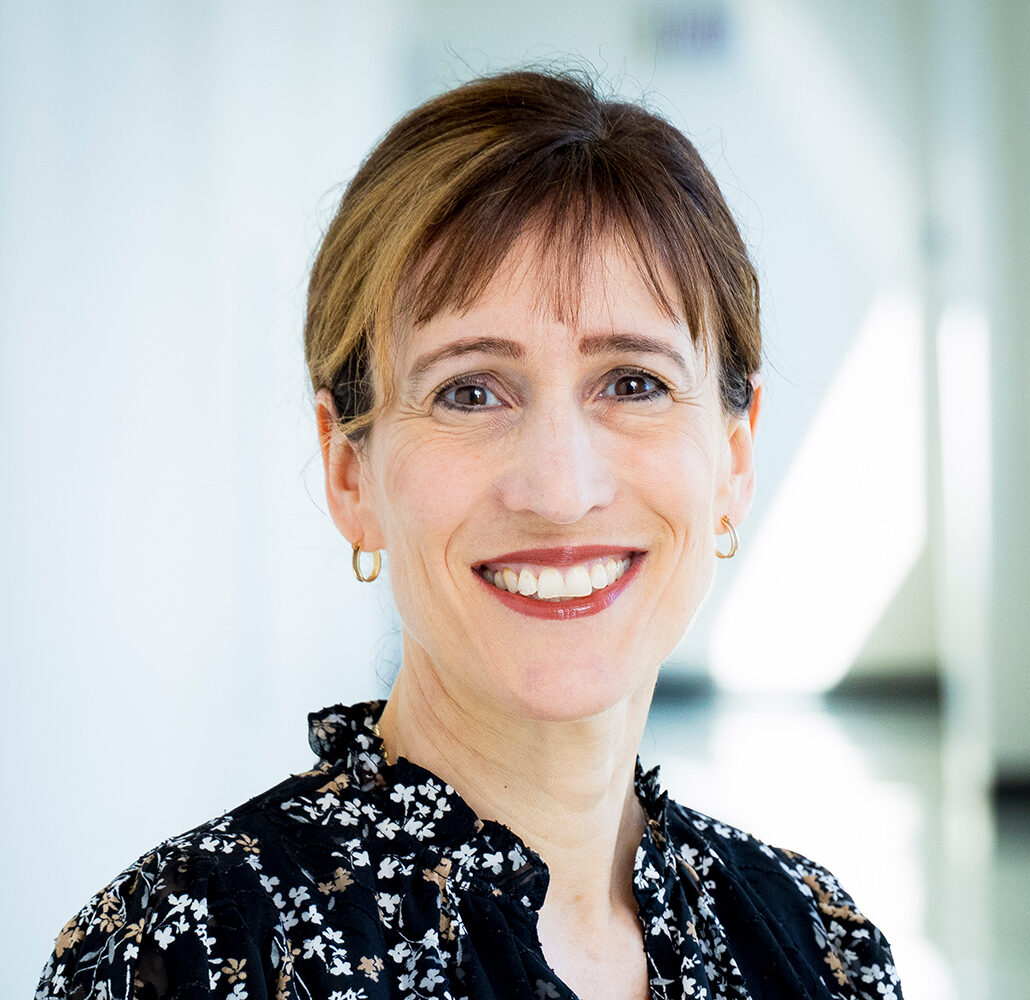
Catherine Hudon MD, PhD
Catherine Hudon is a full professor in the Department of Family Medicine and Emergency Medicine at the Université de Sherbrooke, a regular researcher at the Centre de recherche du center hospitalier universitaire de Sherbrooke and an associate member of the Department of Family Medicine at McGill University and the Department of Health Sciences at the Université du Québec à Chicoutimi (UQAC).
She has been practicing family medicine since 1998 and has held a number of management roles. In addition to her extensive clinical experience, she has scientific expertise in people with complex health needs at risk of high health service utilization, integration of care and services, primary care case management, self-management support, participatory research with patients and organizations, and mixed methods.
Principal Research Associate
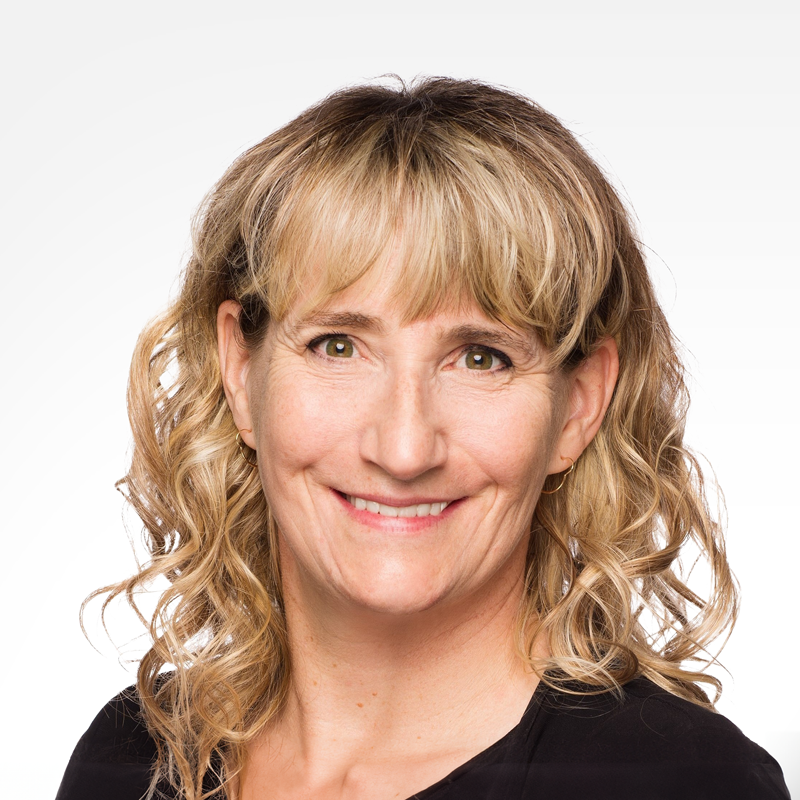
Maud-Christine Chouinard, inf., PhD
Maud-Christine Chouinard is a full professor in the Faculty of Nursing at the Université de Montréal and an associate professor in the Department of Family Medicine and Emergency Medicine at the Université de Sherbrooke. She is also a researcher at the Centre de recherche du CIUSSS du Nord-de-l’Île-de-Montréal and a regular member of the Réseau de recherche en interventions en sciences infirmières du Québec and of Réseau-1 Québec.
With expertise as a clinical nurse in the health care system over the past 30 years, she has also developed research expertise in nursing practice for people with chronic illnesses and complex health needs, including case management and self-management support interventions.
Research and coordination staff
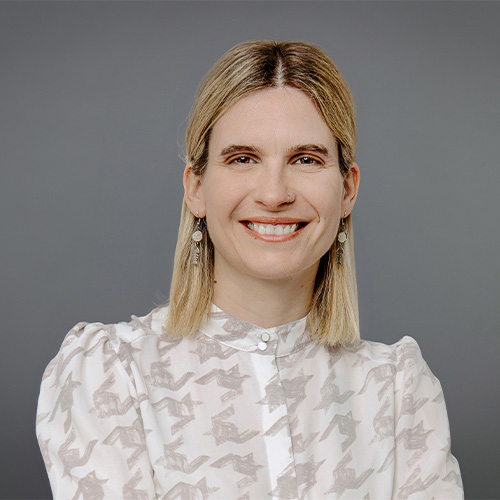
Mireille Lambert, MA
Mireille Lambert holds a master's degree in anthropology from Université Laval. She has been a research assistant for over ten years and supports the Research Chair in all its research activities. She coordinates a variety of qualitative, quantitative and mixed-method projects, from setting up projects in the field, to collecting and analyzing data, and disseminating results to the public and the scientific community.
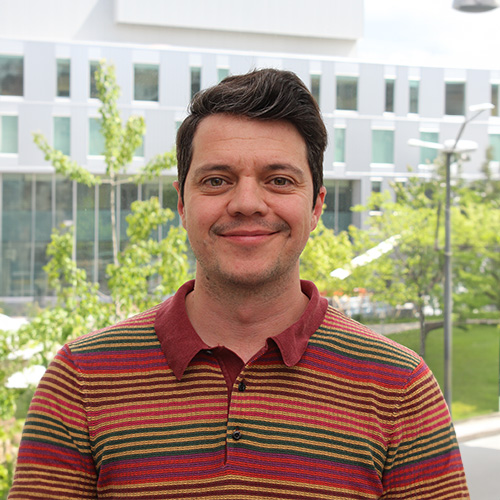
Mathieu Bisson, MA
Mathieu holds a bachelor's degree in anthropology (Université Laval, 2005) and a master's degree in regional studies and interventions (Université du Québec à Chicoutimi, 2012). Between 2013 and 2017, he supported and coordinated various research projects in the fields of homelessness, men's health, urban aboriginals and primary care health services. Over the course of his academic and professional career, Mathieu has developed expertise in qualitative research, which he has continued to perfect within the Research Chair (formerly the V1SAGES team). Since June 2017, he has been collaborating on the Chair's various activities as a research professional in the Université de Sherbrooke's Department of Family Medicine and Emergency Medicine. In line with the Chair, his goal is to improve quality of life and integration of care for people with complex health and social needs through applied and pragmatic research.
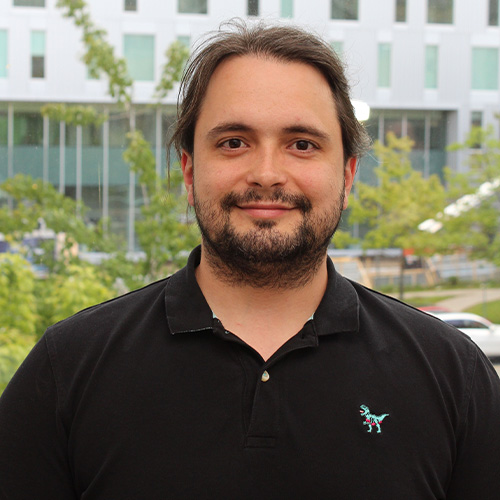
Olivier Dumont-Samson, MA
Olivier Dumont-Samson has been a member of the Chair (formerly the V1SAGES team) as Research Officer since December 2019. After obtaining a multidisciplinary bachelor's degree (creative writing, social service and social and cultural anthropology), he decided to pursue a master's degree in anthropology at Université Laval. These courses enabled him to develop an interest in social and cultural issues, as well as expertise in qualitative research. His job is to support the team in all its activities.
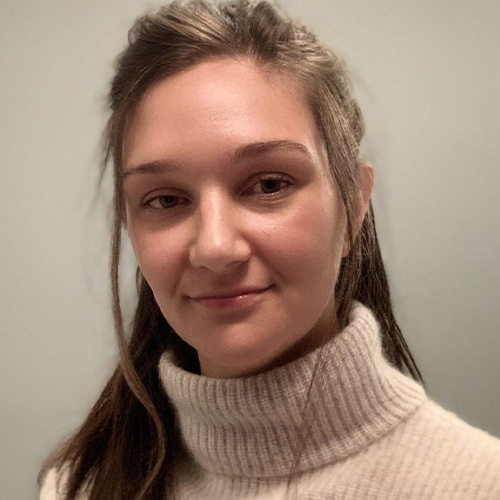
Émilie Angrignon-Girouard, PhD
Émilie Angrignon-Girouard holds a Master's degree in Cultural and Social Anthropology from Concordia University, as well as a PhD in Anthropology from Université de Montréal. During her studies, she focused on entrepreneurial professional trajectories in a migratory context, giving her expertise in ethnographic approaches.
Her academic career has led her to participate in a variety of research projects, notably on institutional changes linked to agricultural reforms, international social movements and transitions to practice among healthcare professionals. At the same time, she contributed to the community consultation milieu as a development agent, working on the themes of youth citizen participation and the women's movement in Quebec. She joined the Research Chair (formerly the V1SAGES team) in September 2021, where she clearly enjoys contributing to the implementation of its projects.
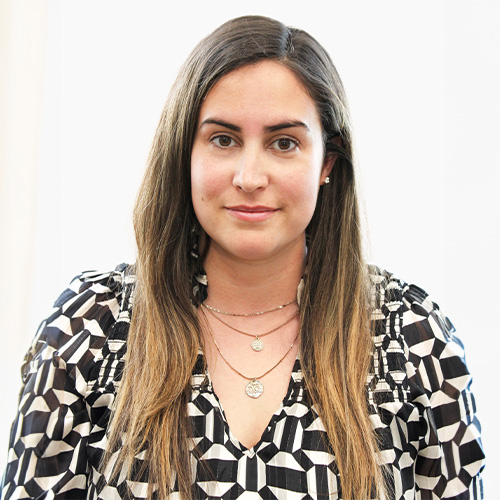
Catherine Maisonneuve, DtP, MSc
Catherine holds bachelor's and master's degrees in nutrition. In the past, she worked as an implementation officer for an integrated chronic disease prevention and management program. She also coordinated two projects aimed at evaluating the effects of a social intervention on the health of seniors experiencing a loss of autonomy. Along the way, she offered support and advice to the professionals and practitioners who implemented these programs.
Catherine joined the Research Chair (formerly the V1SAGES team) in 2022. As coordinator, she first collaborated on a pilot project to deploy the case management program for people with complex needs (V1SAGES approach). She is now involved in preparing for the scaling-up of this approach, and will be providing clinical support to the Ministère de la Santé et des Services sociaux, offering the necessary guidance to the various teams in primary care facilities and clinics in this process.
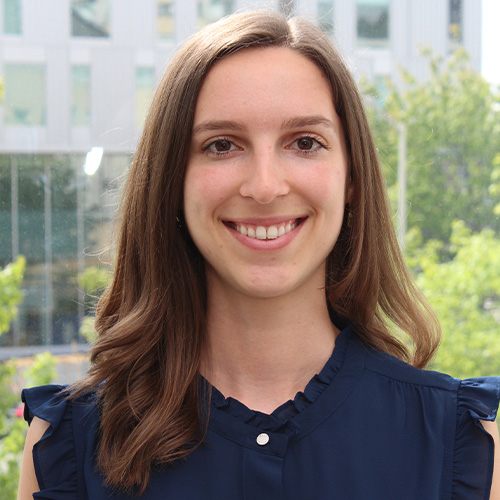
Alexandra Lemay-Compagnat, MA
Since January 2024, Alexandra has been a research assistant for the Research Chair. She holds a master's degree in gerontology and a bachelor's degree in social work from the Université de Sherbrooke. With a keen interest in qualitative methods and the organization of healthcare, Alexandra has actively participated in several projects on the organization of services for people living with a major neurocognitive disorder. As part of the Research Chair, she supports various qualitative projects.
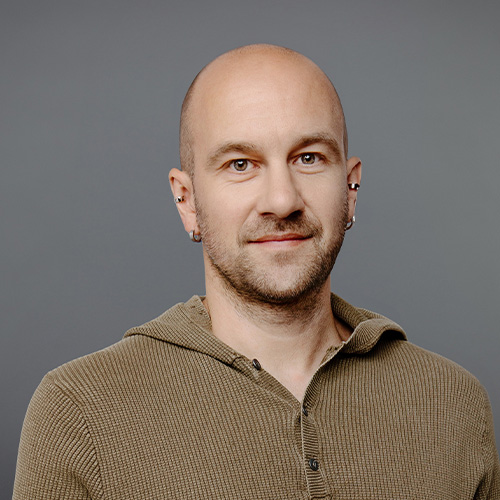
Mathieu Cook, PhD
Mathieu Cook holds a bachelor's degree in anthropology, a master's degree in social work and a doctorate in anthropology. In the course of his life, he has accumulated a variety of work and commitment experiences, including accompaniment of victims of civil war in Guatemala, ongoing training in cultural transmission in Mashteuiatsh and collective prevention of school drop-out in Saguenay-Lac-Saint-Jean. He was also a professor-researcher at the Université du Québec à Chicoutimi between 2014 and 2024, where he co-directed the UNESCO Chair in cultural transmission among First Peoples as a dynamic of well-being and empowerment. In his research, he has developed expertise in discourse analysis, with a particular interest in interculturality and the decolonization of relations between Natives and non-Natives.
This is a welcome return for Mathieu to the Research Chair (formerly team V1SAGES), having held a research officer position there between 2012 and 2013.
Patient partners
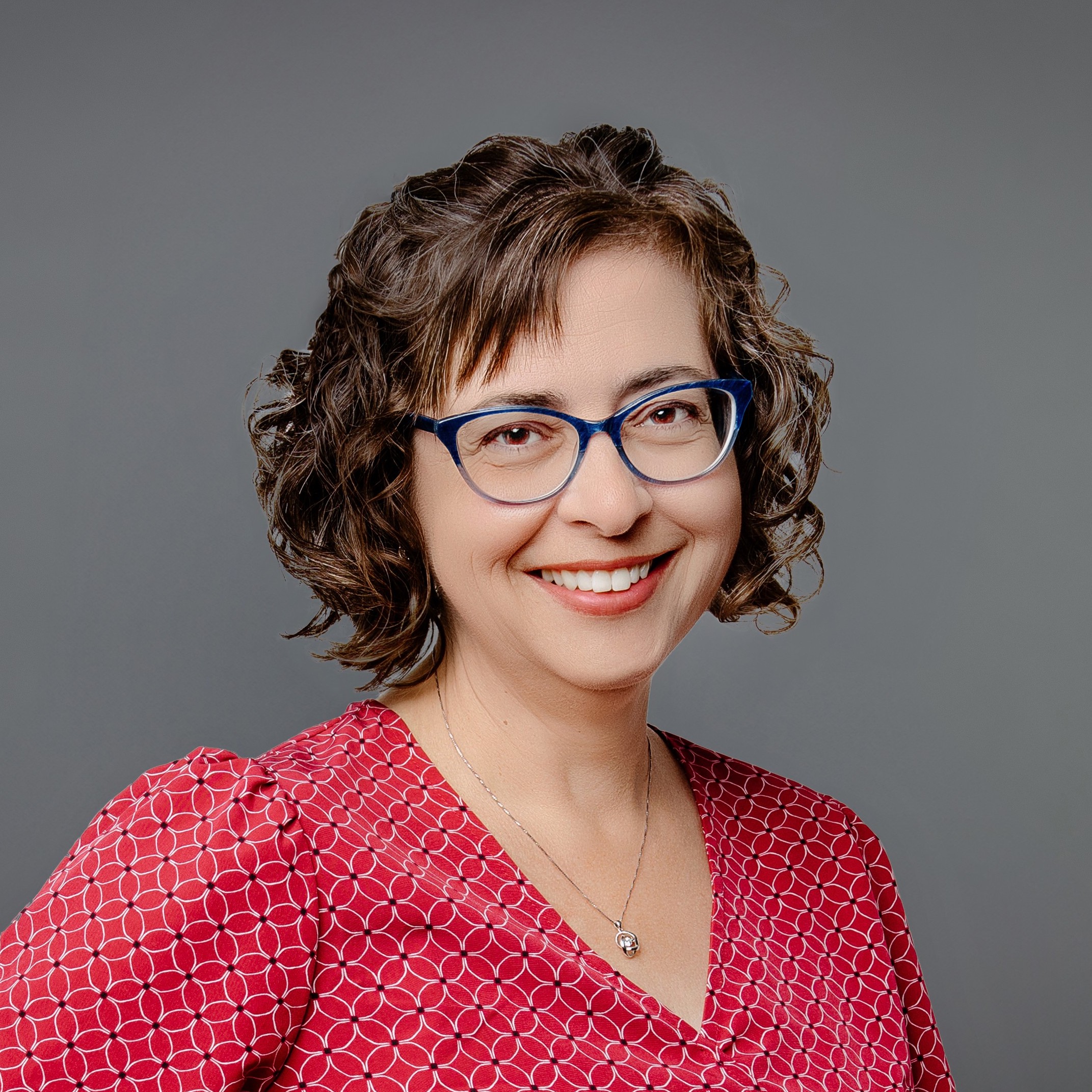
Marie-Dominique Poirier
Marie-Dominique Poirier has been involved as a patient partner in the Research Chair (formerly V1SAGES team) since 2022. She has been sharing her life with chronic pain and its consequences for over twenty years. A teacher by training, she aims to improve patients' life trajectories by creating tools to empower patients and healthcare professionals. For her, clinical teams need to be supported and equipped so that they, in turn, can support and equip patients.
She is involved as a patient-coach and patient partner in various Saguenay-Lac-Saint-Jean health authority committees. She is a co-investigator and patient partner in the CRMUS Research Chair on Professional Practices in Primary Care, as well as a patient partner in the Unité-soutien-SSA-Québec, PASSERELLE and Pôle national de développement des capacités en recherche.
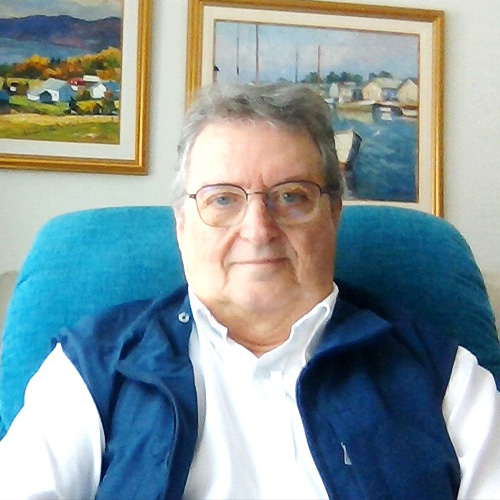
René Benoit
René Benoit has lived with many complex health problems since childhood. He has undergone a dozen surgeries, suffers from chronic pain and is in remission from cancer. For over 10 years, René has been involved as a patient partner. He has been a co-instructor at the Faculty of Medicine of the Université de Montréal in the Collaboration en sciences de la santé (CSS) courses under the Direction collaboration et partenariat patient. He has taken several training courses from the Centre d’excellence sur le partenariat avec le public et les patients. Within the framework of the patient partnership, he has participated in various research projects. René is also a patient partner of Réseau-1 Québec and since 2022, he has been involved with the V1SAGES project team.
To find out more about our
students and interns, click here.

